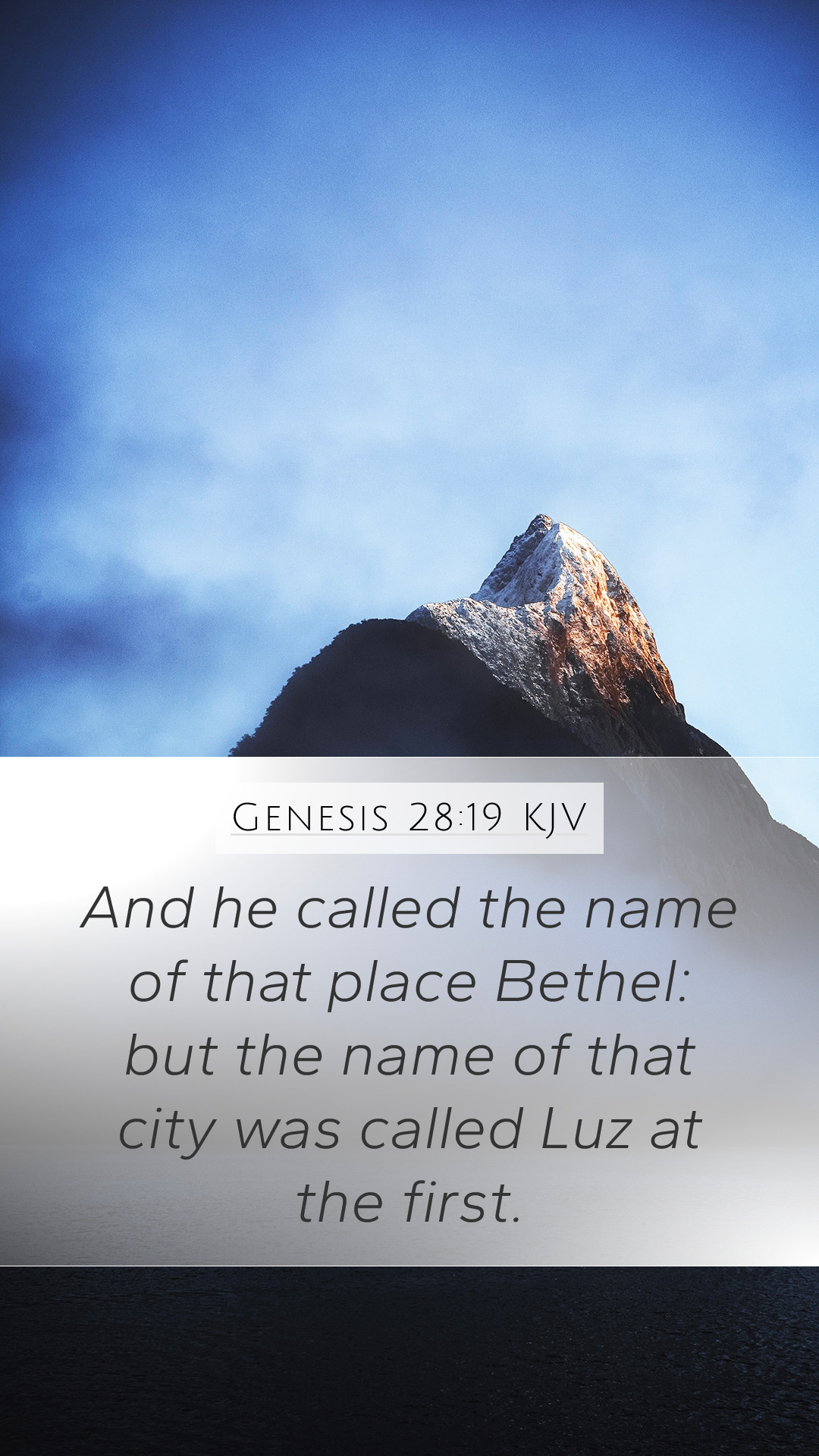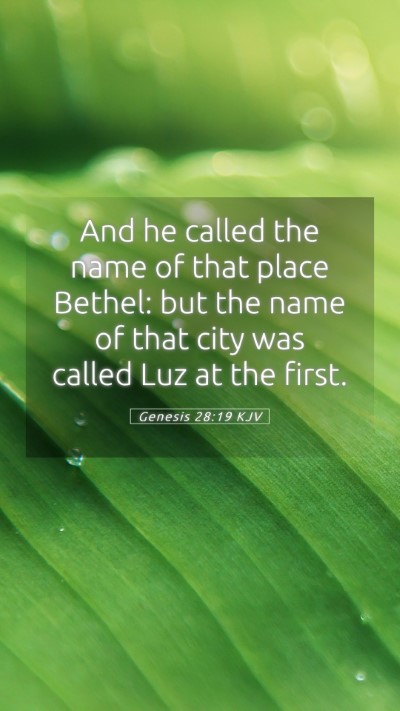Understanding Genesis 28:19
Genesis 28:19 reads, "And he called the name of that place Bethel: but the name of that city was called Luz at the first." This verse carries rich meanings and implications for readers seeking Bible verse interpretations and understanding the context of Scripture.
Summary and Meaning
This passage signifies a pivotal moment in Jacob's life where he, after a vision of a ladder reaching to heaven, designates the place as "Bethel," meaning "House of God." Initially, it was called Luz, which reflects the spiritual transformation that Jacob experienced. The renaming underscores the importance of locations in biblical history and God's ongoing presence with His chosen people.
Insights from Public Domain Commentaries
Matthew Henry's Commentary:
Matthew Henry emphasizes that Jacob's experience at Bethel marks the moment of his awakening to God's covenant. The reference to renaming the city reflects a change in Jacob's spiritual journey—a transition from a place associated with darkness (Luz) to a place of divine revelation and promise (Bethel).
Albert Barnes' Notes:
Albert Barnes notes that the naming of Bethel signifies not just a geographical marker but also a theological declaration. It encapsulates God's intention to dwell among His people and the importance of recognizing such divine encounters in our lives, urging readers to seek and acknowledge the presence of God in their own experiences.
Adam Clarke's Commentary:
Adam Clarke elaborates on the historical significance of Bethel as a place of worship, linking it to future biblical events, including its role in Israel’s narrative. His commentary invites readers to reflect on the broader themes of worship and community that this place represents throughout scripture.
Theological Implications
This verse is significant in understanding how God interacts with humanity. The act of renaming illustrates God's promise to be with His people, a recurring theme throughout the Bible. It sets the stage for later developments in God's covenant relationship with Israel.
Cross References
- Genesis 12:8: The significance of constructing altars and invoking God's name.
- Genesis 35:1-2: Jacob returns to Bethel as commanded by God.
- 1 Kings 12:29: Bethel as a center of worship in the northern kingdom of Israel.
Application to Daily Life
The implications of Genesis 28:19 encourage readers to recognize moments where God reveals Himself. Much like Jacob, individuals are called to respond to divine encounters by establishing places of worship and recognizing their significance in their spiritual journeys. Such experiences can transform one's life, shifting from darkness to divine revelation.
The transformation of Luz to Bethel serves as a metaphor for the potential in every personal encounter with God: changing our perspectives and lives from obscurity to clarity as we embrace His presence.
Conclusion
In summary, Genesis 28:19 illustrates a critical moment in biblical history, signifying God's ongoing presence and the importance of recognizing transformative experiences. By studying this verse and its interpretations, believers gain deeper insights into God's character and His desire for a relationship with humanity.


